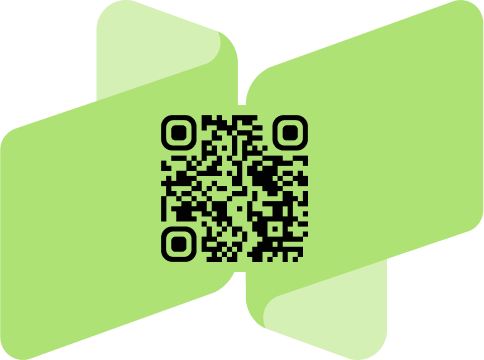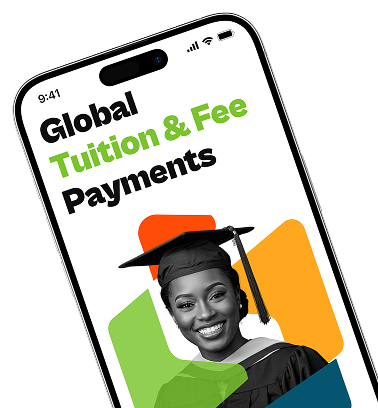Moving abroad to study is a dream for many students, but the journey often presents challenges, from preparing applications to adapting to a new educational system. To inspire and guide others, we spoke with Precious, a Nigerian student currently pursuing her Master’s in Design at The Ohio State University, USA. She shares her journey of securing a fully funded offer, preparing for the F1 visa interview, and adjusting as a first-time international student.
Can you please introduce yourself to us?
My name is Precious. I'm currently a graduate student at The Ohio State University in the United States. I'm doing my Master's in design.
How was your experience of moving abroad ?
I don't think it's a very difficult process, but it's something that you have to be very passionate about. And because you have to put in a lot of hard work, especially if you want to come to the United States with full funding, as I did, having received a fully funded offer from a Nigerian institution.
What I did was research my schools on time because I wanted to attend in the fall of 2023. The previous year, I began searching for schools that offered the program I wanted to pursue and started researching their funding opportunities.
Read: How to Study Abroad without Stress
By the end of 2022, I had already started processing my application to these schools. At the end of the day, I believe that after conducting all the research, I applied to just two universities. And I narrowed it down to the ones I knew I would get in, like the one for which I had strong qualifications, and that was what really helped me. I believe it was at the beginning of 2023, in February, that I received feedback from those schools, as they had requested an interview and other information. After the interview, I was accepted into both schools I applied to, with fully funded offers.
How do you prepare for your move abroad?
One thing that really helped me was conducting research from the beginning. You don't have to wait until the deadline to start researching. If you want to do this, you have to start on time. You need to prepare yourself on time, as writing these SOPs can sometimes take a considerable amount of time. You don't want to write something very generic because you're competing against many other people. So you want to make sure that you stand out. So just prepare on time.
Sometimes, even obtaining your university transcript can delay you. So these are the things you need to start doing now. Like, okay, I need to get my transcript ready. I need to prepare my application materials so that when you're ready to apply, it will be easy for you to do so. That was my experience coming here.
Can you tell us about your F1 visa interview?
One thing I would say is that if you want to go for an F1 visa interview, you have to eliminate the fear. If you've already put those stories about visa officers denying everyone at the back of your mind, it's going to make you scared even before you start your interview. Focus on the positive aspects and maintain a conversational tone.
My interview lasted less than two minutes, and the visa officer inquired about my previous international travel. I was like, 'No, this is my first time, and I'm going for my Master's here, and they're like, 'Okay.'
What do you currently do? Then I was working as a product designer. So I told them I was looking for a product designer. They're like, ' Okay, why do you want to go to the USA? How are you going to fund your education? ' I told them that I had received a fully funded offer based on my qualifications.
Read: Study in France: A Guide for International Students
How can you answer your F1 visa interview questions?
You have to be conversational. I tried to clarify the answer I gave to the visa officer. Additionally, I didn't even get the questions on time because they were too fast, and everything concluded in under two minutes.
One thing that really helped me was preparation. I also had people I was practicing with before the interview. So, I was already very confident in my answers.
When preparing for this interview, avoid sounding generic, as this is one thing that some people often do.
How does the United States educational system differ from Nigeria's?
When I first came to the U.S., it took me some time to adjust to the system here. Coming from Nigeria, I thought that since I had survived university there, I would be able to do the same in the U.S.
I had just three courses that particular first semester I came, whereas I took eight courses in my undergraduate studies. However, the U.S. curriculum is quite different because it requires a significant amount of work.
There are a lot of assignments, and if you don't stay on track, you can easily miss a deadline. Then, you are losing your points for that particular assignment, which might make you fall below a grade in a class. It was very difficult adjusting compared to the Nigerian education system.
How do you cope as a first-time international student?
You have to give yourself a couple of months to fully adjust. Talk to people and ask for help if you know you cannot meet a particular deadline. Try to reach out to a professor on time, as they are often open to supporting you.
If you cannot meet a particular deadline, just let the professor know, like this is what's happening to me. I don't think I'm able to meet this particular deadline for this assignment. And can you please give me an extension? It's better than not doing anything.
Can you share your work experience that helped your student profile?
I was working at Pay4Me App as a UI UX designer. This really helped me because the school I applied to was for my master's degree in design. And take note, I didn't have any undergraduate design experience or a design certificate. My undergraduate degree was in a completely different field. I hold a Bachelor of Science degree in Science Education. Immediately after completing my undergraduate studies and youth service, I started working for the Pay4Me App. I leveraged my professional experience as a designer to apply for my master's program.
Read: How I Secured 11 Fully Funded Scholarships Abroad (Step-by-Step Guide): Festus Cobena Ainoo
How do you handle transitioning into another program?
I know some people will say, 'Oh, I don't have another graduate degree in this particular field, so I can't apply for a master's.' It doesn't work here. Some schools look at your professional experience. So that really helped me. I was able to tell them that although I don't have a degree in design, I have work experience.
I've been working for over three years. I've been able to do this with the Pay4Me App, and this has helped me grow as a designer. I want to use this Master's program to further enhance my skills, and that's exactly what has happened for me.
Were there mistakes you made as a new student?
I wouldn't say I made a mistake, because one thing about me is that I know how to ask for help. Like I was always asking for help. If I don't know something, I'll ask for help. I was very honest with my professor. For instance, he'll give me an assignment and I'll say, 'I don't know' or 'I have no idea.' I would book an appointment with the professor..
We'll go through it together. If I hadn't asked for help, I would have made many mistakes. So, learn to ask for help from the beginning. Being aware of these common mistakes is really helpful.
What advice do you have for students coming to the United States?
For students coming to the U.S., I would say that if you are applying to schools, it's essential to start on time, as completing the application documentation can take some time. If you want to attend a particular session, take the time to understand it.
I would say the United States has two academic seasons: spring and fall. Although some admissions occur during the summer, they are mostly concentrated in autumn and spring. In the fall, there are more funding opportunities. If you wish to pursue a funding opportunity, it is advisable to begin preparing your materials now.
I know someone who wanted to apply for a transcript, and the school told him it would take six months before they would send it. Therefore, you must start your preparations on time.
How do you get a support system in the USA?
People are generally open to helping others, especially those in need, especially in Nigeria. So, just prepare on time, reach out to people, and start drafting your SOPs or something similar.
Can you tell us how you got a graduate assistantship?
I didn't have the money to fund my school fees, as they are very expensive, given that I am from Nigeria. I believe my school fees are over $40,000 per semester, which, when converted to Naira, is quite expensive. And this is per semester, not per session. I knew I wouldn't have that amount of money. When I was searching for schools, I was particularly focused on those that offered financial aid or funding opportunities. And the way funding works in America is that you are either on a fellowship or a graduate assistantship. So, for a fellowship, meaning you don't have any work obligations.
Your fellowship is like an award. So, you're just going to study and take more courses because you don't have any work responsibilities. It is for people who have maybe good academic CGPAs or have done something that qualifies them.
Another option is the graduate assistantship. In some schools, there are three types of graduate assistantships; however, at my school, we have two types: graduate research assistantships and graduate teaching assistantships.
The graduate teaching assistantship requires you to work 20 hours for the school, teaching undergraduate courses. In some schools, you don't have to teach the course yourself. In some schools, you assist the professor by grading, preparing course materials, taking attendance, and helping with the main professor's responsibilities in the class, thereby alleviating some of the professor's workload. In some cases, you may be teaching a particular course to the students.
What's the benefit of a graduate assistantship?
As a graduate research associate or assistant associate, your role would be to assist the professor in preparing research materials, surveys, and interview questions, as well as analyzing and presenting their data. Even if you're a graduate teaching assistant or a graduate research assistant, you're getting experience on how to, and you can use this experience to advance in the field.
How can a student without funding survive in the United States?
Some schools do not guarantee 100% funding, but can give you 50% funding, meaning they are covering your tuition 50%, when you pay the other 50%. So, if you know you can do that, you're welcome. I won't want to discourage you from coming abroad, but I'm not going to lie to you; it's not going to be easy combining your academics with working extra hours.
Sometimes, you might be lucky enough to come to the U.S. and secure an assistance position, even in other departments. So while that is not guaranteed, there's also some on-campus job you could also do to help you sort out your bills.
I recommend that you seek funding opportunities. Even if some departments don't have funding, look around the schools. Additionally, I believe there's mPower Financing, which has helped many students fund their education.
Read: 50 Hidden Gem U.S. Universities For International Students
How can I secure full funding for a Master’s in the U.S.?
Start your research early by identifying universities that offer scholarships, fellowships, or graduate assistantships. Strong academic records, a compelling Statement of Purpose (SOP), and relevant work experience can increase your chances of getting funding.
Once you get an admission offer, you can use the Pay4Me App to pay your SEVIS, application, and tuition fees quickly and securely from Nigeria, Ghana, Rwanda, Liberia, Kenya, or Cameroon.
What are common F1 visa interview questions?
Some common questions include: Why do you want to study in the U.S.?, How will you fund your education?, Where are you going to?, Why this city, and what’s your post-study plan?
Want to prepare better? Pay4Me hosts free webinars and mock visa sessions to help students succeed at their visa interviews.
How do graduate assistantships work in U.S. universities?
Graduate assistantships typically take the form of Teaching Assistantships (TAs) or Research Assistantships (RAs). Students work about 20 hours per week, either teaching, grading, or supporting professors with research. In return, tuition is waived and a stipend is provided.
What challenges do international students face when studying in the U.S.?
Common challenges include adapting to a different education system, managing coursework deadlines, cultural adjustment, and the high cost of living. Building a support system and asking for help early can make the transition smoother..
Can I work while studying in the U.S. on an F1 visa?
Yes, but restrictions apply. F1 students can work up to 20 hours per week on campus during the semester. Off-campus work requires special authorization, such as Curricular Practical Training (CPT) or Optional Practical Training (OPT).




